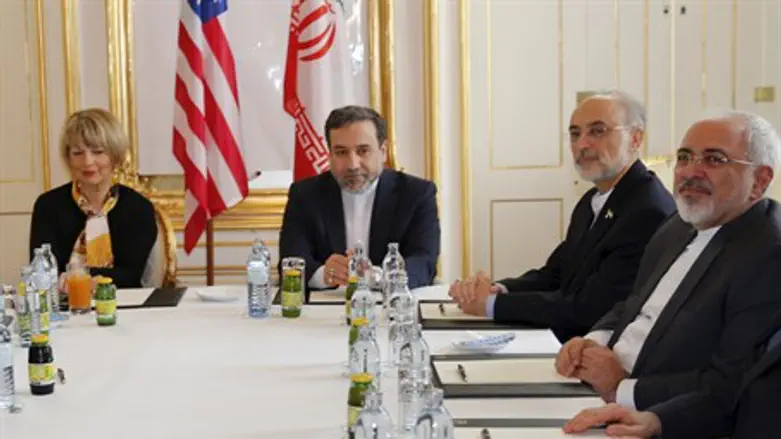
Talks between Iran and the P5+1 world powers have reached a critical juncture Thursday, as a historic deal on Tehran's nuclear program hangs in the balance.
Discussions between the foreign ministers of the United States, Britain, Germany, France, the European Union and Iran lasted late into the night, with the knowledge that if no agreement is reached today, the chances of achieving a deal grow more improbable.
The reason Thursday is such a decisive date is that, according to legislation passed by the US Congress in April, Congress will have only 30 days to review the contents of the deal should it pass on or before July 9.
But, should a deal be reached after July 9, Congress will have a much more advantageous 60 days to review the accord.
Until the end of this 30 or 60 day period, the US government will be unable to lift sanctions on Iran, thereby causing a delay in the full implementation of the international agreement.
US officials have long asserted that the "real" deadline for a deal with Iran is July 9, as doubling the amount of time Congress has to review the accord would cause problematic delays.
Despite the time pressure, Iran and the West once again extended on Tuesday the deadline on reaching a final nuclear deal to Friday after already having extended it from June 30 to July 7.
In addition, a senior Democratic senator alleged Wednesday that President Barack Obama believes the chances of a nuclear agreement with Iran are “less than 50-50."